Peel and stick wallpaper instructions
Please take a moment to read through this guide before hanging, it will help ensure a successful installation of your chosen design. It is important that you understand the entire process before you start. If you are unsure of any of the steps, please get in touch with our customer service team who will be happy to help.
For optimal adhesion of your WALLFLORA peel and stick wallpaper, ensure the surface is smooth, clean, and dry. Remove any dirt, dust, grease, mildew, or ink stains to prevent adhesion issues. If dealing with heavily textured or damaged walls, consider using a heavy-duty wallpaper liner. We advise having two people for installation to ensure smooth application—so team up and enjoy the process!
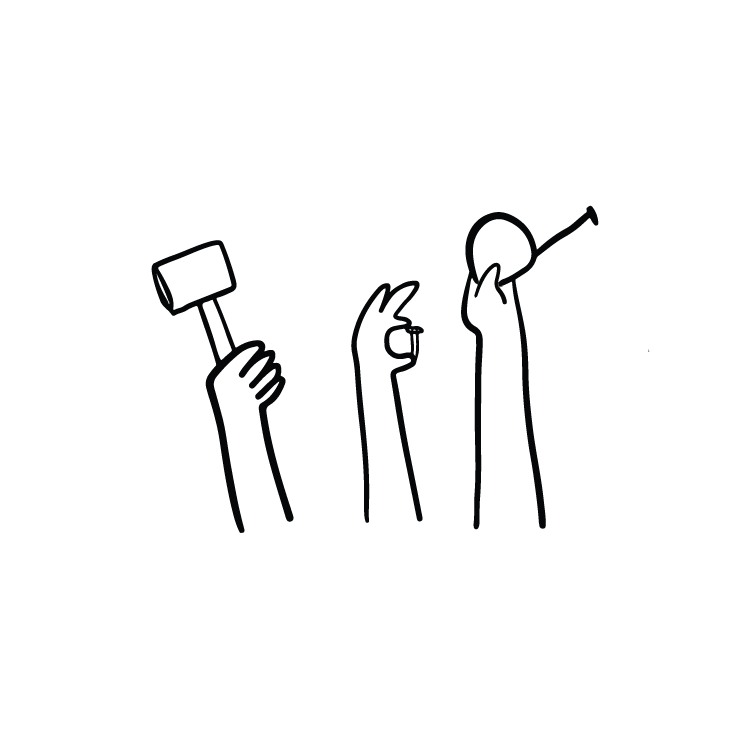
Pre-Installation Checklist
- Clean the wall thoroughly with a microfiber cloth.
- Remove nails, screws, and fill in cracks.
- Switch off electricity and remove socket/switch covers.
- Sand rough areas smooth.
- Maintain room temperature at 68°F (20°C) during installation.
- Let wallpaper acclimate in room for 24 hours before applying.
- Important: For optimal adhesion, wait 4 weeks after painting walls. Washable and glossy paints may not adhere well. If using washable paint, prime with PVA-based primer or regular emulsion paint and let dry before hanging wallpaper.
Any type of wall texture, including orange peel texture, may not allow your wallpaper to adhere properly.

Tools you will need
- Microfiber cloth
- Measuring tape
- Spirit level
- Pencil
- Exacto knife or paper knife
- Triangle ruler
- Plastic squeegee smoother with felt edge
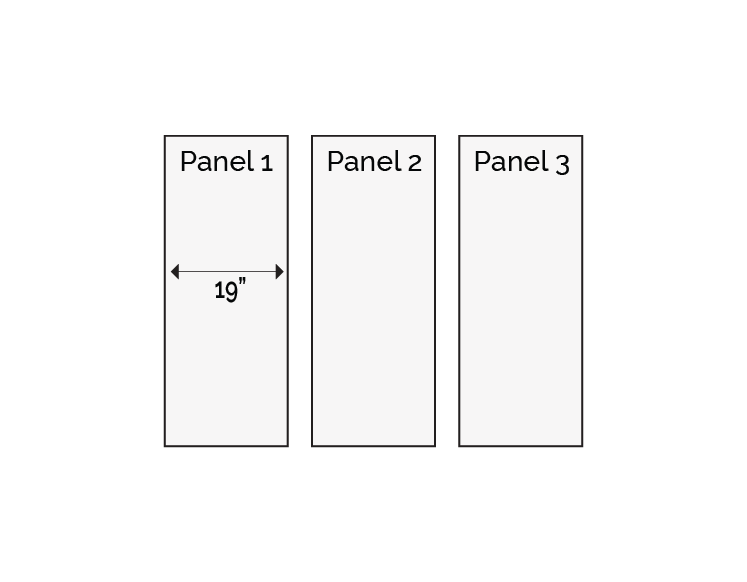
- Unroll the wallpaper or mural and separate the panels. Arrange them in hanging order from left to right on the floor. For murals, use the numbers on the back of each panel, which are always positioned at the bottom to ensure correct orientation. Repeating patterns can be installed in any order.
- Once your wallpaper or mural is laid out, align the design to ensure the image or pattern matches before proceeding with installation.
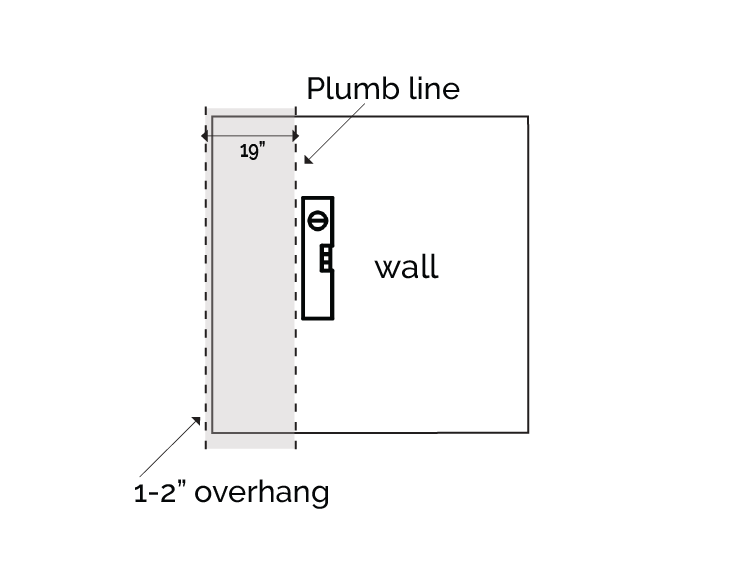
Line up the first panel
- Start from the left side of your wall. Use a tape measure and spirit level to mark where Panel 1 should be positioned. With a pencil create a vertical plumb line from floor to ceiling, then mark a horizontal line 19” from the wall with 1”-2” overhang on the left side of Panel 1. This ensures the first panel is hung straight, vital for successful installation.
Your wall may not be perfectly straight and using it as a reference will result in incorrect installation, take time to get this part right!
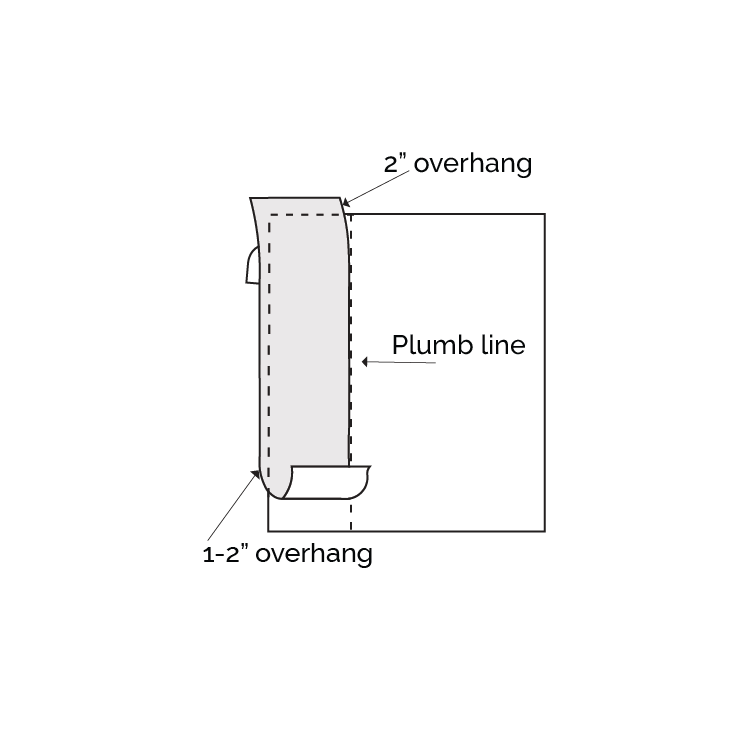
Install the first panel
- With your partner's assistance, peel about a third of the backing paper from the first panel. Align the top right edge with the marked plumb line, leaving a 2” overhang at the top to prevent gapping on uneven walls and ceilings.
- Once the first panel is straight, continue removing the lining paper slowly while working with the felt-tipped squeegee to apply pressure gradually from the middle, moving downward and outward. Avoid creasing the wallpaper by smoothing gently and evenly. Smoothing diagonally helps remove trapped air.
- If repositioning is necessary, gently remove and restick the panel until straight.
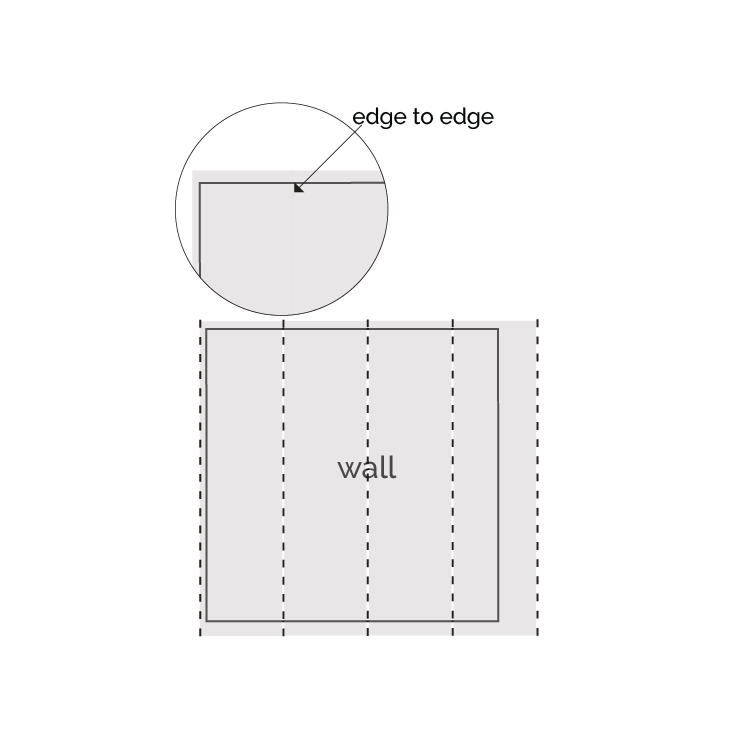
Butt up the panels
When hanging multiple panels, align the panels edge to edge without overlapping!
- Peel about a third of the backing paper and, with assistance, visually match the design down the length of the wall. Once aligned, firmly press the panels together to conceal the seams without overlapping. Smooth out any air bubbles using the felt-tipped squeegee or a soft cloth.
- Proceed to remove the remaining backing paper and carefully smooth the wallpaper until fully installed.
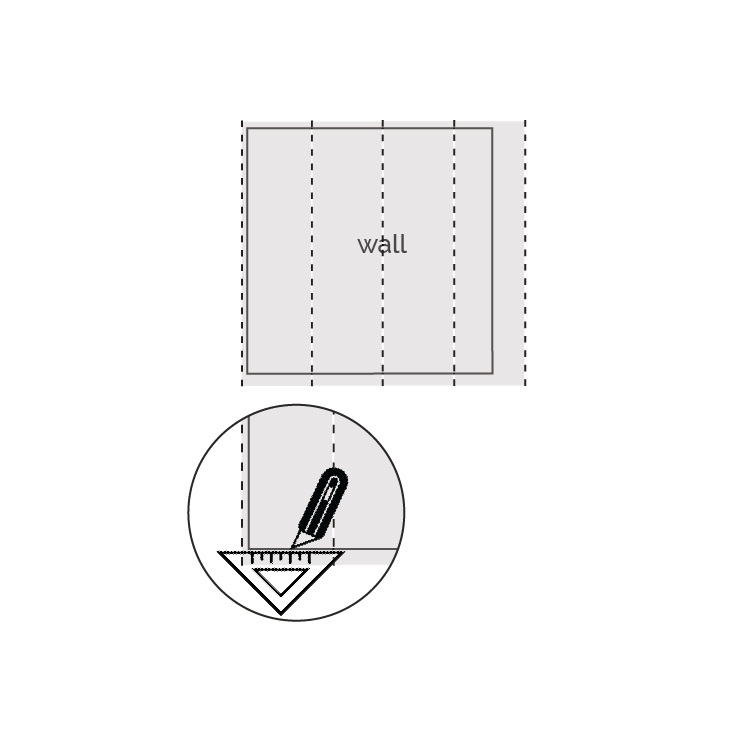
Repeat until finished
- Repeat the previous steps for all panels until wallpaper is fully installed.
- Use a triangle ruler and sharp blade to trim excess from final drop and top/bottom of all drops.
- Firmly smooth wallpaper with felt-tipped squeegee to remove air pockets and ensure bonding to wall. Repeat this step one week after installation for optimal results.
Allow for drying at room temperature with adequate ventilation.







